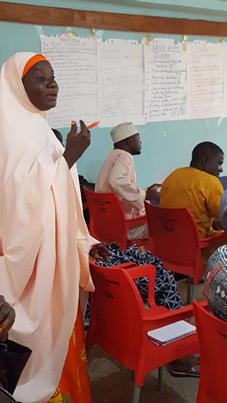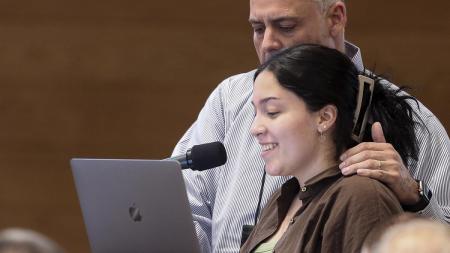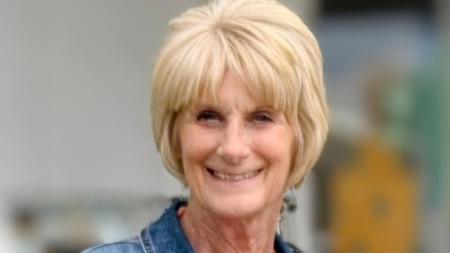Taking Another Step for Peace in Nigeria

Woman helps lead conference.
Peter VanderMeuelen
A three-and-a-half-day conference that took another step toward building peace in the Wukari, Nigeria, area has ended, and the participants — both Christian and Muslim — have returned to their homes or moved on to other business.
Hoping to build peace in an area where hundreds of people have been killed and thousands of homes and businesses have been destroyed, the conference began early last week with the prayer and financial support of members of the CRCNA, 54 religious leaders, traditional chiefs, politicians, and local government officials gathered in Makurdi, Benue State, Nigeria.
It was for me a very moving and hopeful experience.
For instance, in his opening welcome, Rev. Caleb Ahima, chair of the Peace, Justice, and Reconciliation Committee of the Reformed Churches in Nigeria, said: “We know the value of peace, and we know the danger of conflict. No one will build peace for us. We must own this process for ourselves, our children, and our grandchildren.”
The chief imam of the Wukari mosque opened with prayer along with the chair of the Taraba state Christian Association of Nigeria.
There were five traditional rulers present - including the chief of the Wukari Fulani community - sitting with their staffs of office in the front row.
In his introduction one of them said: “I am filled with joy to be here. Peace has found a stool to sit on. Our prayer is that everyone here will leave with a gift to take home to give to our people.”
This was the second peace-building consultation held in the Middlebelt region of Nigeria this year, and it was organized by the Inter-Religious Peace Committee – which was the outcome of the first consultation, held in January. It is larger, more diverse, and has high-level participation. It builds on the first consultation.
The CRCNA has supported this effort throughout its development, helping out financially and in other ways.
Why should we in the CRCNA care about and support this effort on the part of our Nigerian Reformed family and their Muslim neighbors?
For one thing, our denomination has worked for many years in Nigeria — in development, education, church-building, and peacebuilding.
But why now is this especially important? Here’s why:
Conflict between Muslims and Christians, stoked by extremists and fanatics, has been growing all over the world, but it has been especially worrisome in Nigeria – a country of 180 million people equally divided between Christians and Muslims.
The roots of the conflicts in Nigeria are almost always other than religious differences. Issues such as grazing and farming rights, control of resources, and increasing drought in the north have spawned protracted and recurring conflicts resulting in death, destruction, disrupted economic activity, and millions of displaced people in Nigeria.
The leaders of the Wukari peace initiative — of which I was a member — spent three days at a Roman Catholic retreat center, digging into the causes of the tension and strife, talking and listening to each other, and then trying to find ways to confront and solve those things at the root of the conflict.
During one dramatic moment, a Muslim participant shared his anger and hatred for those who shot him in the stomach. We were very moved when he said: “I said and did things in anger and pain that I am now sorry for. Now I must forgive and work for peace with my Christian brothers and sisters.”
As we left this consultation, our hope remains to continue on the road to peace. Last month in Wukari, we took another big step together toward peace and reconciliation so that, in the words of one participant, “our children and grandchildren will know real peace.”


